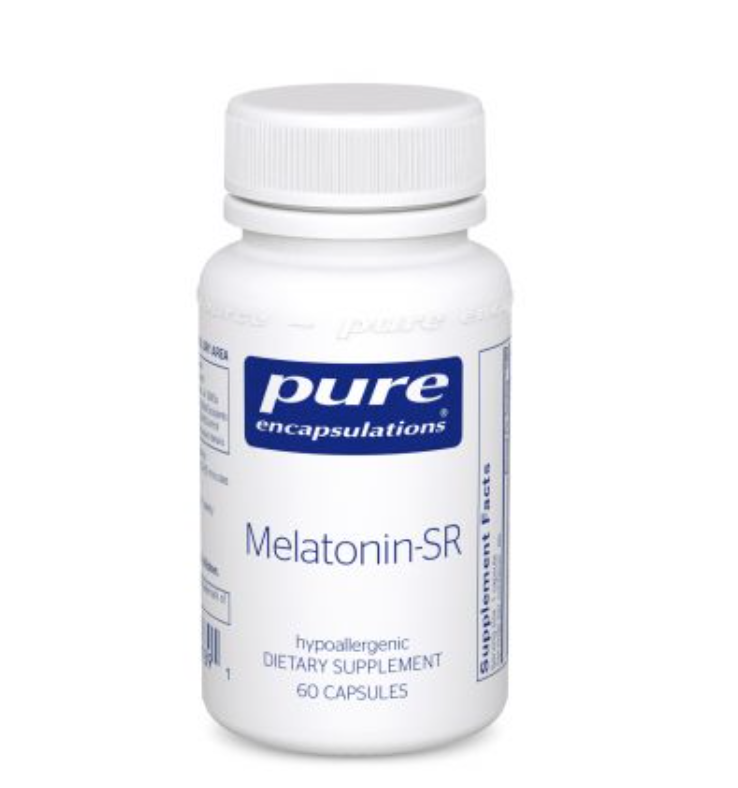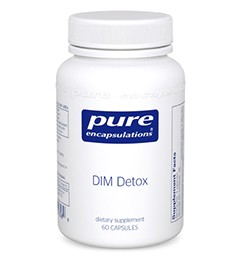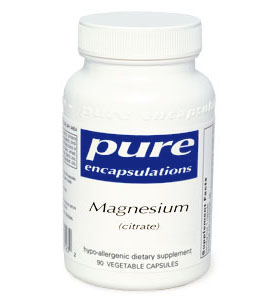Product Description
Melatonin-SR – Slow Release
Supports the Body’s Natural Sleep Cycle
Sustained-release Melatonin Supports Healthy Sleep Up to 6 Hours
Melatonin-SR provides 3 mg of sustained-release MicroActive® melatonin to promote healthy sleep. MicroActive is an innovative, patented delivery system that offers both improved absorption and sustained release. A pharmacokinetic study of MicroActive melatonin demonstrated rapid uptake and prolonged presence in plasma up to 6 hours after a single dose. MicroActive melatonin has an initial rapid release of 40% of the active ingredient in the first hour then the remaining slowly over the next six hours.
Melatonin is a hormone produced by the pineal gland, which regulates the body’s sleep/wake cycle. Melatonin’s primary role is regulation of the body’s circadian rhythm, endocrine secretions, and sleep patterns. Studies indicate that melatonin facilitates the onset of sleep, as well as sleep efficiency.
It’s well known that good healthy sleep resets our body and is restorative. We need it to be good quality, a sufficient number of hours (7-8 hours) each night and contain adequate phases of deep rapid eye movement REM.
Circadian Rhythm — Our Internal Clock
The circadian rhythm is like an internal 24-hour “clock” that plays a central role in when we fall asleep and when we wake up. Melatonin is sometimes referred to as the “hormone of darkness” because when it is dark, your body produces more melatonin and when it is light, the production of melatonin drops.
Being exposed to bright lights in the evening or too little light during the day can disrupt the body’s normal melatonin cycles. All the screen time on computers, smart phones, television and the like, has an impact on our melatonin production.
Melatonin levels decrease as we age. This might explain changes in sleep patterns, difficulty falling asleep, etc. as people get older.
Melatonin, the Immune System and Inflammatory Signals
Melatonin has been shown to have a protective effect if the innate immune response overreacts, can cause uncontrolled release of pro-inflammatory cytokines.
In COVID-19, overreaction of our own immune system can lead to a cytokine storm and severe, sometimes irreversible damage to respiratory epithelium. Scientists are actively studying (and publishing papers on) melatonin as a therapeutic agent in the treatment of COVID-19.
See the abstract below (though a bit technical) for other benefits of melatonin, including its strong antioxidant properties.
“Melatonin as an antioxidant: under promises but over delivers,” Journal of Pineal Research, October 2016
Abstract
Melatonin is uncommonly effective in reducing oxidative stress under a remarkably large number of circumstances. It achieves this action via a variety of means: direct detoxification of reactive oxygen and reactive nitrogen species and indirectly by stimulating antioxidant enzymes while suppressing the activity of pro-oxidant enzymes.
In addition to these well-described actions, melatonin also reportedly chelates transition metals, which are involved in the Fenton/Haber-Weiss reactions; in doing so, melatonin reduces the formation of the devastatingly toxic hydroxyl radical resulting in the reduction of oxidative stress.
Melatonin’s ubiquitous but unequal intracellular distribution, including its high concentrations in mitochondria, likely aid in its capacity to resist oxidative stress and cellular apoptosis.
There is credible evidence to suggest that melatonin should be classified as a mitochondria-targeted antioxidant. Melatonin’s capacity to prevent oxidative damage and the associated physiological debilitation is well documented in numerous experimental ischemia/reperfusion (hypoxia/reoxygenation) studies especially in the brain (stroke) and in the heart (heart attack). Melatonin, via its antiradical mechanisms, also reduces the toxicity of noxious prescription drugs and of methamphetamine, a drug of abuse.
Experimental findings also indicate that melatonin renders treatment-resistant cancers sensitive to various therapeutic agents and may be useful, due to its multiple antioxidant actions, in especially delaying and perhaps treating a variety of age-related diseases and dehumanizing conditions. Melatonin has been effectively used to combat oxidative stress, inflammation and cellular apoptosis and to restore tissue function in a number of human trials; its efficacy supports its more extensive use in a wider variety of human studies.
The uncommonly high-safety profile of melatonin also bolsters this conclusion. It is the current feeling of the authors that, in view of the widely diverse beneficial functions that have been reported for melatonin, these may be merely epiphenomena of the more fundamental, yet-to-be identified basic action(s) of this ancient molecule.









